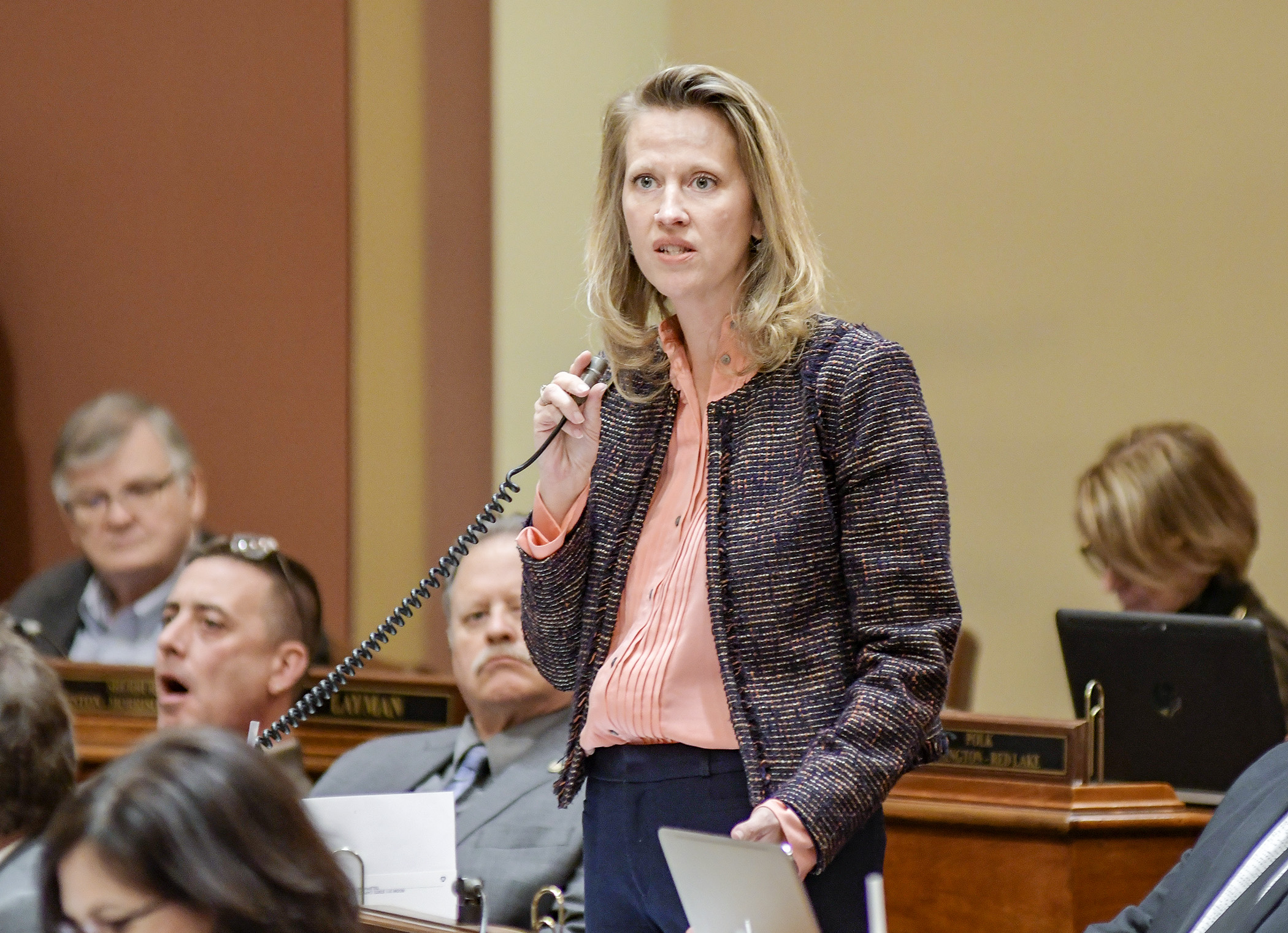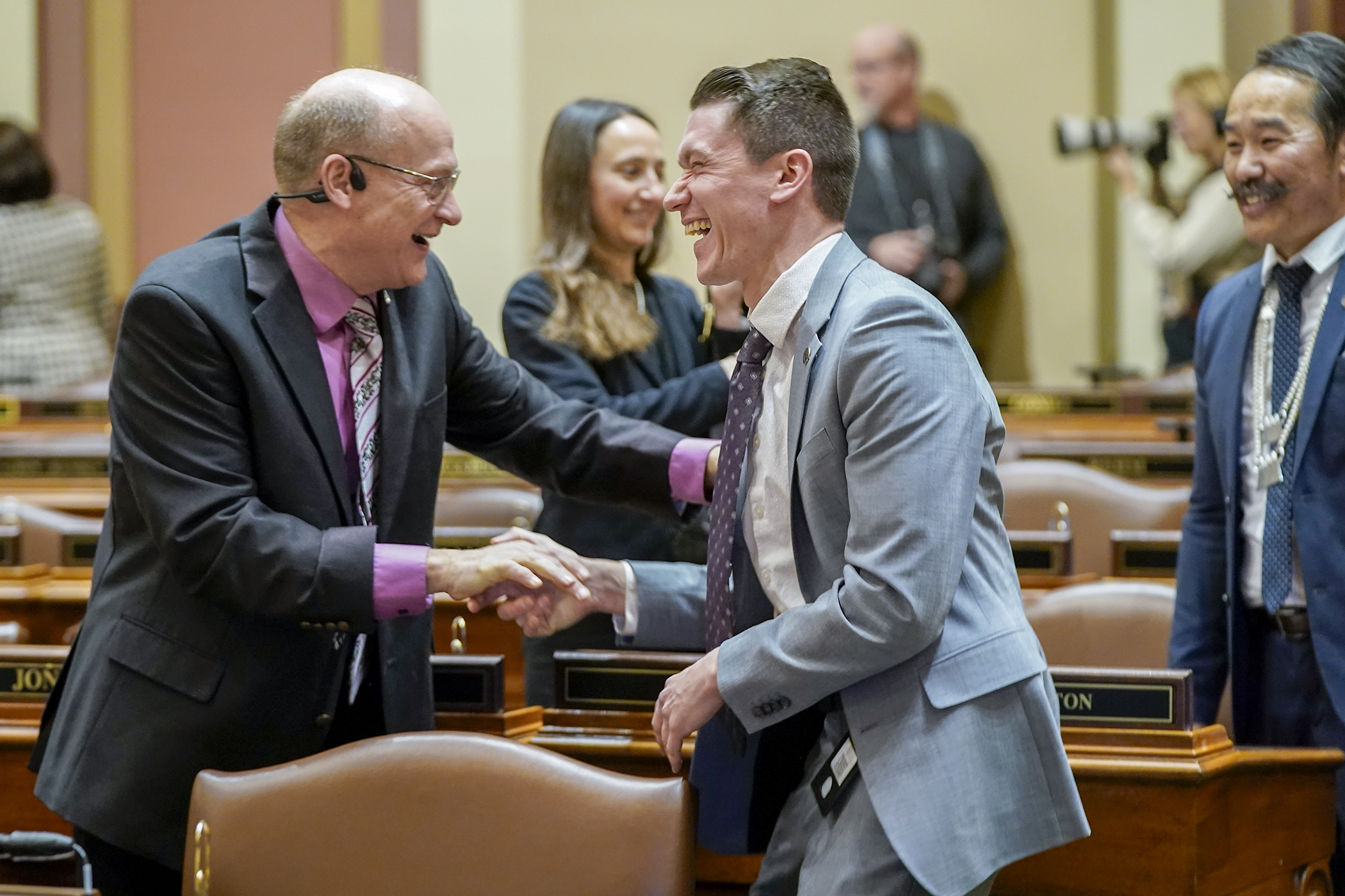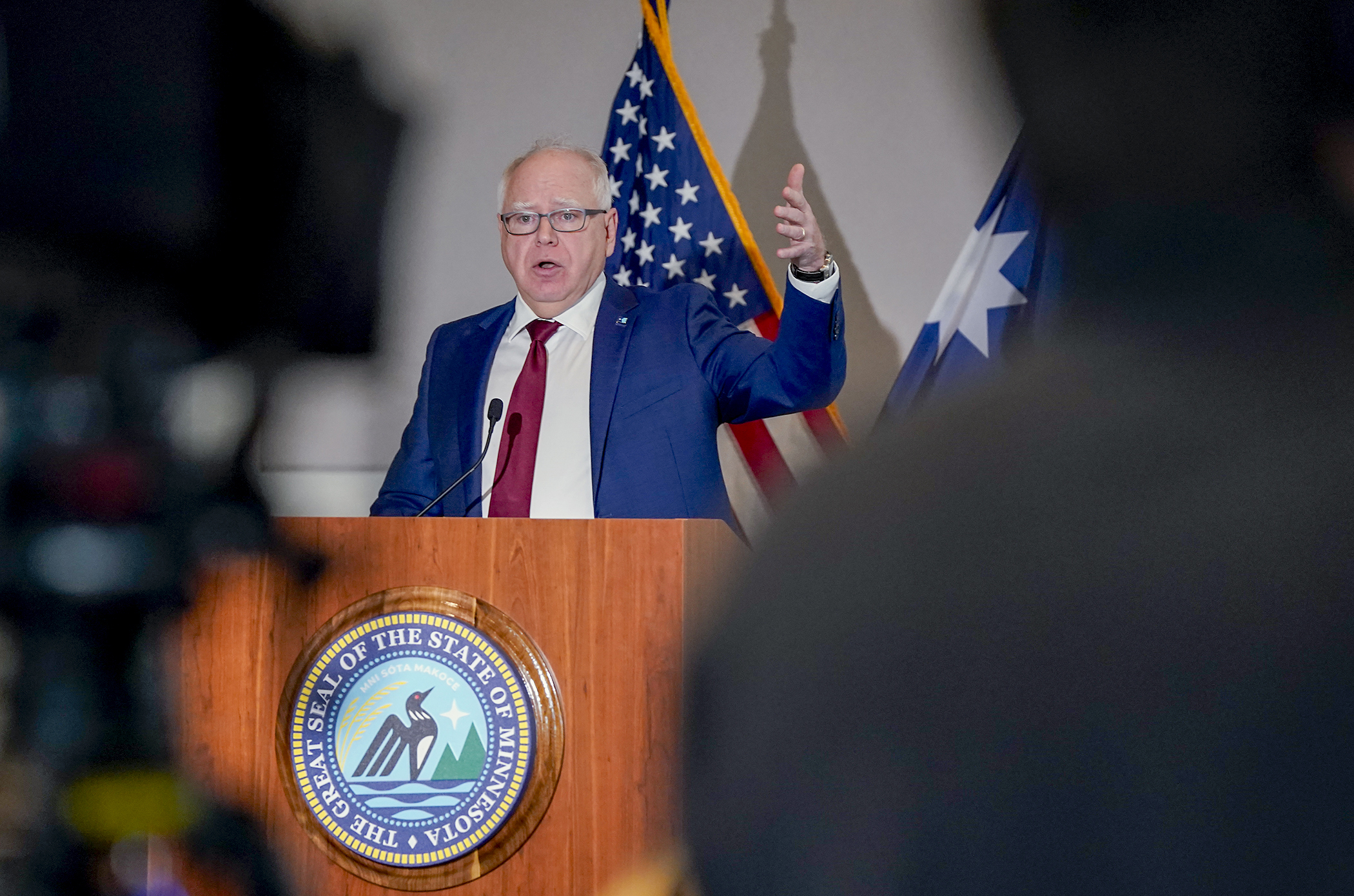Legislative funding bill clears House

Without a real budget since November when the state Supreme Court sided with Gov. Mark Dayton’s use of a line-item veto eliminating the Legislature’s funding, the House on Thursday passed a bill that would fully fund the Senate, House and Legislative Coordinating Commission through the remainder of the biennium.
Lawmakers approved HF399, as amended by a conference committee, sponsored by Rep. Sarah Anderson (R-Plymouth), on a 77-50 vote.
The Senate passed the conference committee report 38-28 Thursday evening.
The report allocates $64.4 million to the Senate, $64.76 million to the House and requires both chambers to return the borrowed LCC funding by June 30, 2018. Anderson said on the House Floor the amount would cover any legal fees from the lawsuit.
 Rep. Sarah Anderson explains the HF 399 conference committee report to members during Thursday’s floor session. Photo by Andrew VonBank
Rep. Sarah Anderson explains the HF 399 conference committee report to members during Thursday’s floor session. Photo by Andrew VonBankCiting the numerous offices within the legislative branch, Anderson said, “This is to fund them, this is money to fund our operations as a legislature as a body… that is exactly what we’re doing today.”
Legislative leaders sued Dayton last year after the governor used his veto pen to eliminate House and Senate operating budgets. The case went to the state Supreme Court, which determined the Legislature had access to and should use LCC’s money until it could fund itself.
On Thursday, Anderson called the governor’s veto “an embarrassment to Minnesota.”
Recently, Dayton said publicly he wanted lawmakers to pass a “clean” legislative-funding bill – with no policy in it. The bill passed Thursday is just that.
“I feel good that the governor has asked us to bring forward a clean bill,” House Majority Leader Joyce Peppin (R-Rogers) said.
The conference committee report wasn’t without its critics. Rep. Tina Liebling (DFL-Rochester) said she didn’t like the bill’s process – a delete-all amendment was used to replace an older bill related to highly compensated public employees -- and House Minority Leader Melissa Hortman (DFL-Brooklyn Park) called it “distasteful” that House members approve their own salaries before ratifying a state employee union contract debated earlier in the day.
“It isn’t a very Minnesotan thing to put ourselves first,” Hortman said.
Anderson responded by touting both nonpartisan staff and the two caucuses’ staff: “I would hate to think that we would make this a political moment for those folks who work so hard for us every single day.”
Related Articles
Search Session Daily
Advanced Search OptionsPriority Dailies
Full House convenes for first time in 2025, elects Demuth speaker
By Tim Walker DFL, Republicans convene with a quorum for the first time in 2025 session after agreeing to a power-sharing deal.
DFL, Republicans convene with a quorum for the first time in 2025 session after agreeing to a power-sharing deal.
Walz proposes slimmed-down 2026-27 state budget, sales tax changes
By Tim Walker This is an odd-numbered year, and so the Legislature is constitutionally required to craft a budget to fund the state government for the next two fiscal years.
Gov. Tim Walz...
This is an odd-numbered year, and so the Legislature is constitutionally required to craft a budget to fund the state government for the next two fiscal years.
Gov. Tim Walz...